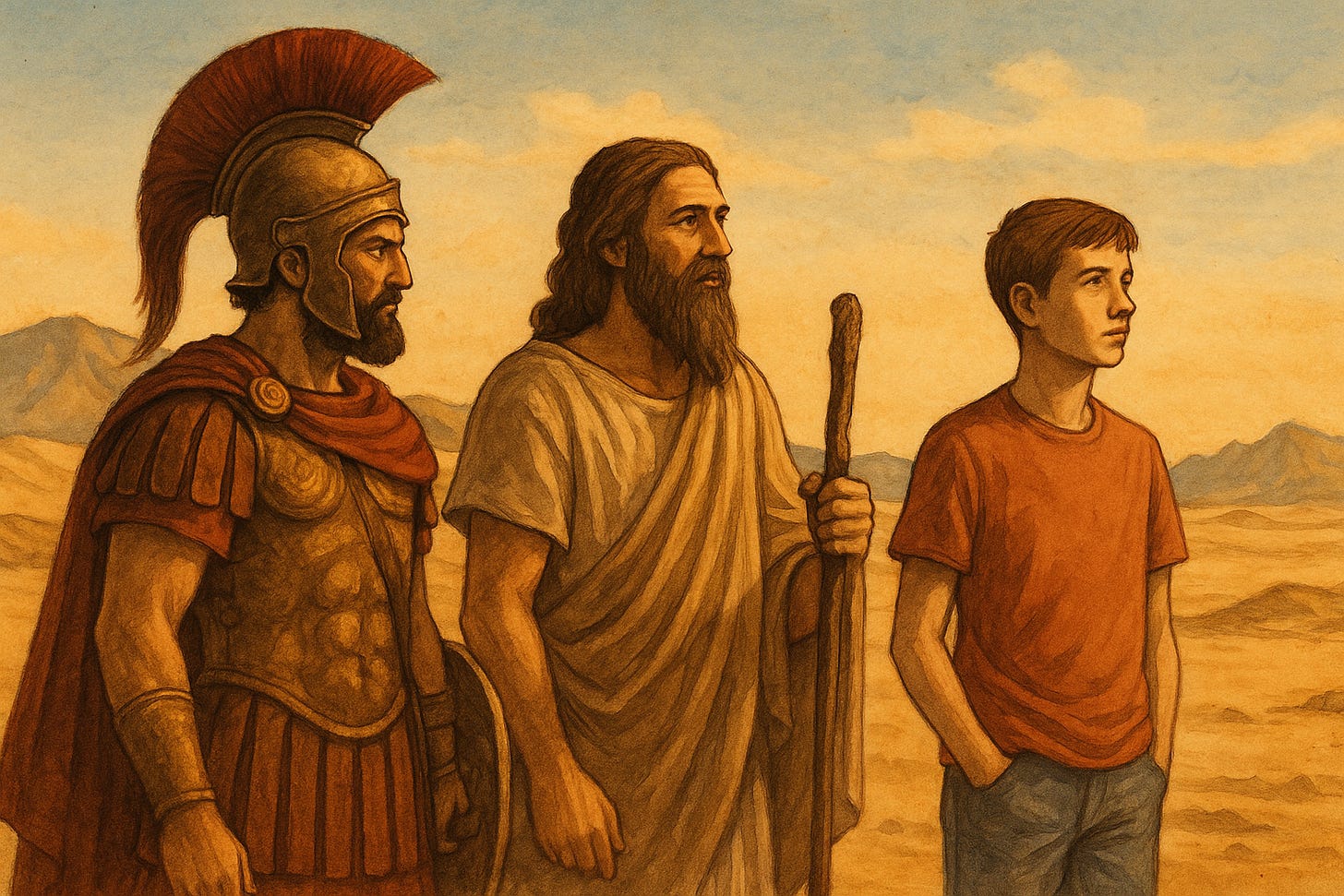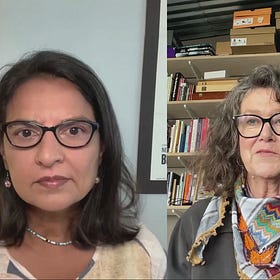Book Chat Reflection: Virtue without a divine anchor
Doug Casey tells young men to write their own moral code. But without something higher, does character risk collapsing into convenience?
Collapse Life is teaming up with Susan Harley of Courageous Conversations for a ‘book chat,’ a two-way conversation with our community about ideas stemming from a book we all read together.
For September and October, we are reading The Preparation, by Doug Casey, Matt Smith @ Crisis Investing, and Maxim Benjamin Smith.
The book lays out an alternative path for young men as they chart their future. You can watch our kickoff conversation from last week here:
Book Chat kickoff: ‘The Preparation’ gives prepping new meaning
Thank you Maxim Benjamin Smith, Helen Tonetti, Wayne MacKenzie, Zach Keeshin, Felice M, and many others for tuning into our live video with Susan Harley! Join us again next week for another live video as we begin to explore the contents of the book.
And our most recent check-in here:
Here’s one thought that came up while reading Doug Casey’s introduction to the book. He talks a lot about virtue, and how young men should create their own personal code to live by as a first step to becoming ‘prepared’.
He lays out a simple structure of ‘Be-Do-Have,’ and correctly states that our culture overemphasizes ‘doing’ things just so that we can ‘have’ things, to the detriment of ‘being’ the kind of people we want to be.
Here it is in Casey’s words:
But the essence of life is Beingness. Who, in fact, are you? That’s a question that’s rarely asked. Few people want to pursue their essence, to see what’s there. Beingness isn’t a chalice or object of some kind, it’s the real Holy Grail. It’s why we find monks devoting their lives to work and prayer, living simply and following orders. Even more extreme, some become ascetics, scourge their bodies and live as hermits, denying themselves food and every kind of comfort. They’re looking for the meaning of life. I think, however, they’re going at it in the wrong way. Fighting against the concept of Have is to fight reality.
Perhaps that’s because they’re afraid of finding and having to confront failures, lies, betrayals, cheats, stupidities, shameful aggressions, or thefts. These things result in shame or guilt and are burdens that you always carry with you. They erode your very Being. How do you avoid that? By adopting a personal code of ethics. By always doing the right thing. By being a stand-up guy. In this book, we’ll help you develop your own personal code. A personal code grounded in morality and virtue should keep you from Doing harm and wanting to Have destructive things. It will make it easier to Be. Doing moral things allows you to Be something that you want to be; to mold yourself into the man you want to be.
All of this is great, and it’s refreshing to hear someone focus not on possessions, or credentials, but character. He’s right that the essence of who you are — your ‘being’ — is more important than what you ‘do’ or how much you ‘have’.
In making his case, Casey takes virtue out of the religious frame completely and roots it instead in classical ideals of manliness — courage, justice, honesty, temperance — drawing from Homer and Aristotle rather than from theology.
Don’t be afraid of virtue (which makes many people flinch today). The meaning, the essence, of the word has been degraded. It’s associated with religious concepts, more suited to clergy than men living in the world. We don’t mean to disparage anyone’s religious beliefs, but the origin of virtue is the Latin word vir, which means “man.” Real virtue is to be manly, like the Homeric heroes Achilles, Hector, or Odysseus. There are long lists of virtues (and vices) depending on who’s talking. There’s often confusion between the Classical and the Theological virtues. The Classical virtues date from ancient times and include courage, justice, honesty, temperance, and hospitality. Theological virtues are concepts more along the lines of faith, hope, charity, humility, and chastity seem more appropriate for cloistered nuns than young virile men.
This framing is understandable in an age when many people, ourselves included, see organized religion as hollow, corrupt, and deceptive. But by deleting God entirely from the picture, Casey also deletes any sense of transcendence.
He emphasizes virtue but makes it into something you write for yourself, a personal code defined and enforced by no one higher than you.
That raises questions we think are worth wrestling with:
Without an anchor in the eternal, can a “personal code” be rewritten whenever it becomes inconvenient?
If each man writes his own code, what stops one person’s “courage” from becoming another’s recklessness — or cruelty dressed up as “strength”?
If your code is only yours, who holds you accountable when you fail?
In a society where we already prize autonomy above all else, is more autonomy — moral codes without an anchor — enough to carry us through?
Casey argues that building character is the heart of education and that’s certainly a good starting place. However, elevating Homeric or Renaissance heroes risks narrowing virtue to a kind of performative masculinity. Achilles may be courageous, but he’s also wrathful and destructive. Odysseus is cunning, but also deceitful. The Romans, for all their social and cultural innovations, still partook in fleshly excesses of orgiastic proportion. Without transcendence, “virtue” can become just another word for glorified vice.
It also seems as though Casey is advocating for ‘being’ as the end result of ‘doing’ and ‘having’ — “Having and Doing should put you on the road to Being,” he says.
Scripture would have you consider things differently: Being is the starting point (God says “you are my people”), action is the response (“therefore walk in my commandments”), and having is the outcome (“all these blessings will come upon you and find you.”)
The scriptural counterpoint is worthy of reflection as Casey and the Smiths’ book, The Preparation, posits a path to help reframe the education of young men in a rapidly changing world.
Your turn
What do you think? Can virtue stand on its own, or does it collapse into subjectivity unless tethered to something beyond man?
Read the chapter, and let us know your thoughts in the comments.





You are raising some very thought provoking questions …Virtues and Morality individually and in the collective, could not be more important now .
To me the Divine and transcendence are paramount to how I live my life and deepen my connection in service to life.
Individual codes are necessary and so are collective codes built on trust, shared responsibility and visibility.
Eventually, after exploring all other options, mankind realizes that the truth of our battles over good and evil lies in the spiritual realm. This is where it started and this is where we will find the remedy. The battle rages and the solution is available to all who ask.